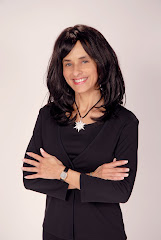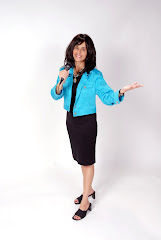Friday, September 9, 2011
Introducing Faceglat: The 'Kosher' Facebook
Here is an article about the new Kosher version of Facebook. I bet you are wondering what that means. Well, read on……
By Véronique Falez of LE MONDE/Worldcrunch
Faceglat is a new social network that allows its users to chat online, share information and pictures, and add new friends – all the while strickly separating men from women, just like in synagogue. Launched in Israel last month by a young Hasidic geek, this website boasts a social structure designed especially for ultra-Orthodox Jews. The name "Faceglat" comes from the fusion of two words: Facebook, and glatt, meaning highly kosher, according to the Jewish dietary laws of kashrut.
When men go on Faceglat.com, they sign up by clicking on the arrow on the right of the screen. Women click on that on the left. From this moment on their respective paths will never cross. "One day, a couple of friends paid me a visit, and while we were chatting, the young woman said it was a pity that there was no website where she could share pictures with her female friends without other people being able to see them,” says the site’s creator, Yaakov Swisa. “We started thinking about a religious social network, where there would be no indecent pictures, and which would garantee that men could not see photos posted by women, and vice versa.”
And so, six busy months later, the first kosher Facebook was born. But the 25-year-old Faceglat founder does not wear the traditional wide-brimmed black hat, nor does he dress in the ultra-Orthodox dark suit. Wearing a checkered shirt, a black kippah on his head, carrying his laptop bag on his shoulder, he bridges the gap between his Lubavitch community from the village of Kfar Chabad, located 8 km south-east of Tel Aviv, and the thrilling world of new technology.
No one could have predicted that the young boy who went to school in a yeshiva to study the Torah and the Talmud would one day become part of the Internet big league. "I taught myself on the family computer, during holidays," he recalls. His goal is not to push traditional communities towards change. Instead, he wants to protect them. "Orthodox Jews need the Internet, at home and at work alike,” says Swisa. “My website allows them to browse freely, while offering them maximum security. It also reassures parents who worry about their children going on pages that everybody can consult.”
Keeping the content kosher
Trust demands extremely strict rules. For example, a program tracks and deletes inappropriate words. And users who mischievously put photos of men in the women-only space, or who posted pictures that were deemed indecent, are simply banned from the website. For the time being, administrating Faceglat still involves a lot of improvisation. But in order to "move quicker," this Mark Zuckerberg of hasidic neighborhoods wants to buy a software that can identify and automatically delete pictures showing "more skin than is necessary."
Though the website is only a newcomer on the Internet, Faceglat has already attracted more than 2,000 users, mainly by word of mouth, and about 100 new accounts are being created every week. "It’s only the beginning. There are lots of curious people, most of them men from Israel, but actually about 15% of our users live in Russia," says the active young man with a smile.
The website is only available in Hebrew and English at the moment, but it will be translated in French and Russian in the next few weeks. It will then lead to an online advertising campaign, on orthodox forums and on religous singers’ fanpages. A brand new feature of the Facebook revolution.
Subscribe to:
Post Comments (Atom)







.jpg)
.jpg)




No comments:
Post a Comment